Analyzing current events in the Republic of Belarus (as of the end of September – beginning of October 2022) the situation can be defined as stable. Two years after the mass protests, there is no serious opposition to President Alexander Lukashenko in the country. The opposition centre headed by Svyatlana Tikhanovskaya does not pose a threat to the regime and is not particularly popular among the people, mostly because of her lack of charisma. Tikhanovskaya is not perceived by the population as a national leader – she is perceived as a “protege of the West”, a “puppet” and a person dependent on her environment.
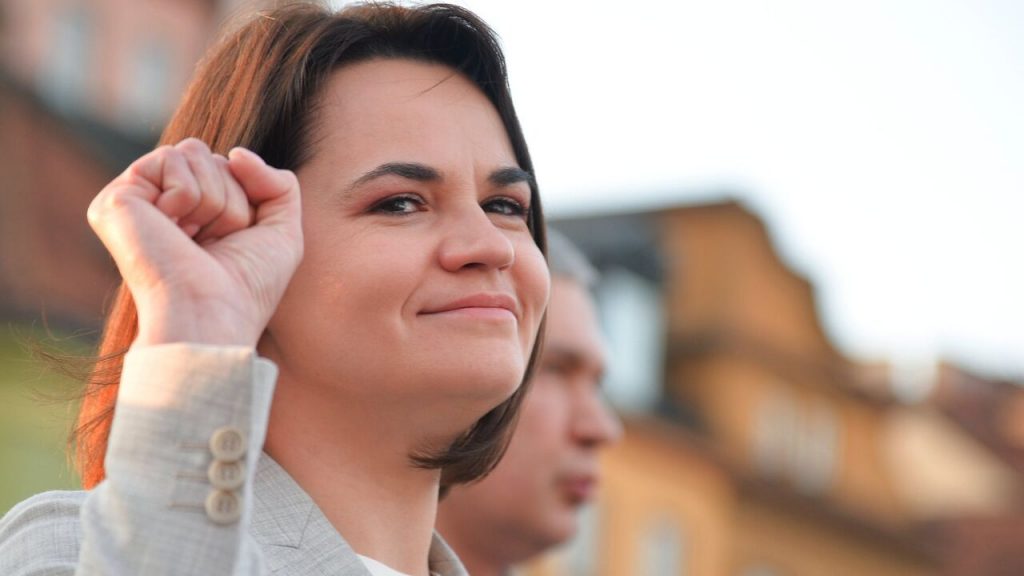
The main protagonist in her circle is 32-year-old Frantisek (Franak) Vecherko (advisor and head of the foreign policy department). Earlier Vecherko was working for the “Radio Liberty” and is closely associated with the British and American intelligence services. Also, Vecherko has received grant funding from the American NDI. Frantisek Vecherko’s father, Vintsuk (Valentin) Vecherko, headed the Belarusian People’s Front in 1999-2007, ran for the Supreme Council of the Republic of Belarus, and also headed the commission on international relations of the Belarusian People’s Front. Now he heads the organisation “Center Supolnast” associated with the Soros Foundation.
The Belarusian media regularly state that Vecherko’s father and son are MI6 agents (it is important to note that we are talking about mass media controlled by the Lukashenka regime). There are currently no other sources confirming this information.
An interesting point. Frantisek Vecherko’s grandfather, Grigory Nikolaevich Vecherko, was an adviser to the first secretary of the Central Committee of the Communist Party of Belarus Pyotr Masherov, deputy chairman of the State Planning Committee of the BSSR, and also lectured at Minsk KGB school for 13 years. Amongst his students are the current head of the Presidential Administration of the Republic of Belarus, General Igor Sergienko, Secretary of the Security Council of the Russian Federation Nikolai Patrushev and Director of the Federal Security Service of the Russian Federation Alexander Bortnikov. It is also interesting that Grigory Vecherko was the only one who was supposed to accompany Pyotr Masherov on a trip to Borisov on October 4, 1980, and who was “late” for the trip itself (even the trip form was preserved) – during this trip, Masherov and those accompanying him died in a car accident.
At some stage, Pavel Latushka tried to cooperate with Tikhanovskaya (formerly a Belarusian official and diplomat, Ambassador of the Republic of Belarus to the Republic of Poland, Minister of Culture of Belarus, and since 2020 one of the leaders of the opposition to Lukashenka), but Vecherka took all possible steps to quarrel Tikhanovskaya with Latushka. In fact, the Vecherko family “privatized” the Tikhanovskaya project.
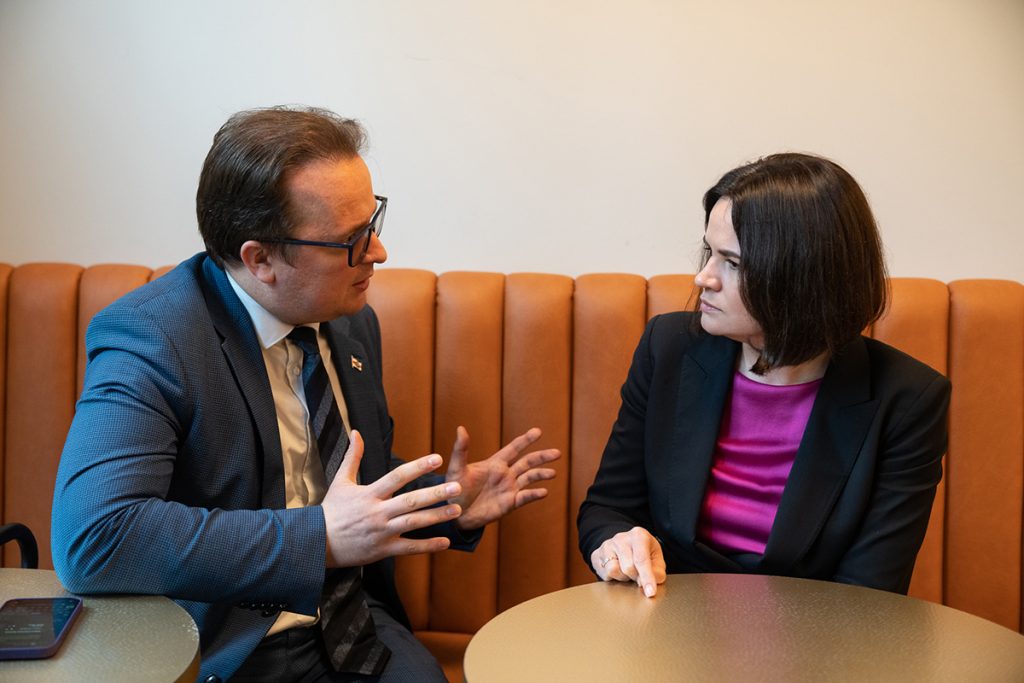
In this regard, it is interesting that Latushka launched a rough activity, trying to show in every possible form that he is a more promising political figure. Latushka’s statement that Lukashenka is preparing a mobilization according to the Russian scenario and the deployment of 120,000 Russian soldiers on the border with Ukraine does not stand up to criticism, but it made a lot of noise in the Ukrainian media. Latushka is considered a provocateur even in the opposition environment of Belarus. Also, in Belarus many people believe that Latushka’s “opposition” is only a private offence: Latushka’s wife Natalya went to the First Deputy Head of the Presidential Administration of the Republic of Belarus Maxim Ryzhenkov.
According to available information that needs to be confirmed, Latushka is trying to independently negotiate with Washington to receive funds for his own political project.
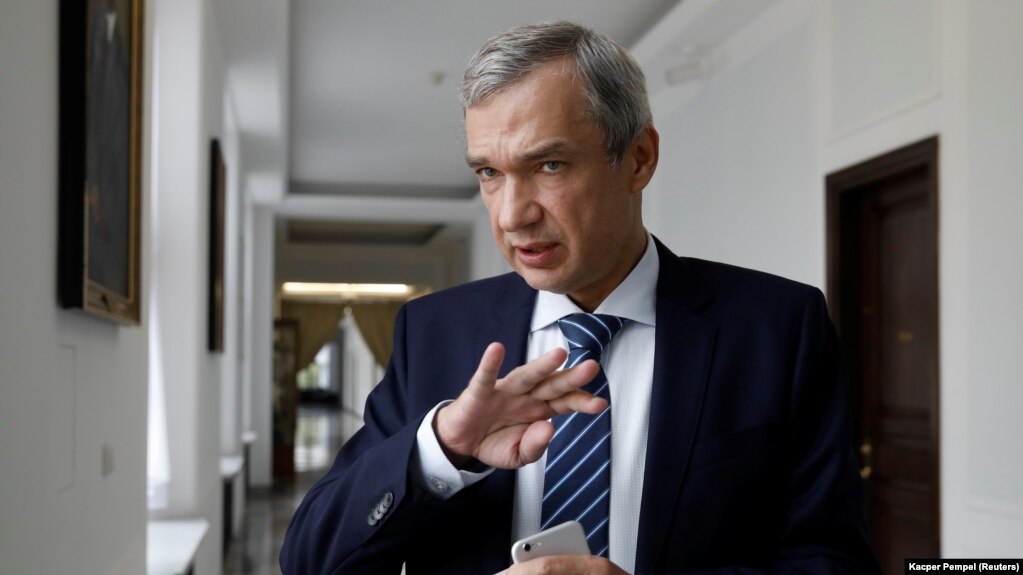
On Monday, September 26, the meeting of the Presidents of Russia and Belarus, Vladimir Putin and Alexander Lukashenka took place in Sochi. This meeting was already the seventh this year, but like the previous ones, it did not receive a wide resonance in the information space.
Interestingly, the meeting itself became known literally in a day, and the public became aware of its venue only after the fact.
According to sources worthy of attention, during the meeting, the presidents discussed the possible “inclusion” of part of Ukraine into the Russian Federation, as well as processes in the post-Soviet area. Putin tried to convey Lukashenka to recognise the territorial expansion of the Russian Federation, but Lukashenka, in his usual manner, shied away from a direct answer.
However, Lukashenka promised Putin to consider the issue of recognizing the independence of Abkhazia. At the end of the week he even made a trip to Sukhumi, where he met with the leaders of the self-proclaimed republic. His dialogue with the Minister of Foreign Affairs of Abkhazia, and until recently, a close collaborator of Vladislav Surkov and a specialist in subversive information operations in Ukraine and Belarus by Inal Ardzinba) took place there. This was preceded by a trip to Abkhazia (June 24) by Lukashenka’s special representative Viktor Sheiman. To date, this is Lukashenka’s biggest concession to Putin.
Putin’s proposal to hold the next meeting in Crimea was postponed by Alexander Lukashenka until the completion of the “special military operation.”
Putin’s attempts to persuade Lukashenka to take part in joint actions against Ukraine under the brand name of the “Anti-Terrorist Coalition” (which, according to Putin’s plan, could soon replace the SMO) ran into another argument. The Belarusian leader said that he should consult with Xi Jinping, the Chinese leader on this matter as China is an important friend and main investor in the Belarusian economy. Thus, Putin’s proposals remained unanswered by Lukashenka. But at the same time, this situation shows that “not everything is so simple” in the Union State.
Interestingly, Lukashenka refused to attend the ceremony of “inclusion” of the annexed Ukrainian territories into the Russian Federation.
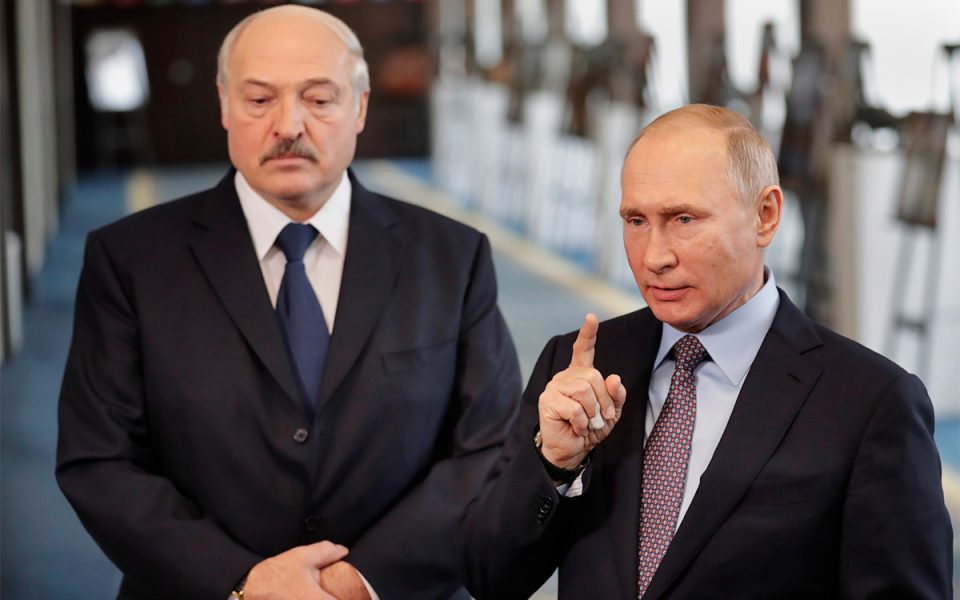
It is important to note that Lukashenka does not refuse to provide the Russian Federation with his territory for the deployment of military equipment – as he did not refuse before, which automatically makes him an accomplice in Russia’s terrorist actions. But he is against the use of the Belarusian army in the war against Ukraine. This topic is very unpopular in Belarus and Lukashenka, as a refined populist, has to reckon with the opinion of the people.
The Russian politicians Nikolai Patrushev (through the figure of the new Russian ambassador to Belarus Boris Gryzlov, an old friend of Patrushev) and Sergei Chemezov (through the Prime Minister of Belarus Roman Golovchenko, a person who is fully oriented towards Chemezov) have the most serious influence on Belarus. However, at the same time, Lukashenka very seriously consults on many issues with his Chinese comrades – for example, with Zhao Jiuyan, who, having the status of a trade adviser to the Chinese Embassy in Belarus, communicates directly with Lukashenka in an informal setting. Also, Belarusian sources claim a certain “three-story mansion in the centre of Minsk”, which houses Chinese advisers to Lukashenka.
This forces Russia to make various unpleasant for Lukashenka indications. So in Moscow Boris Gryzlov had an almost revealing dinner with the former Minister of Internal Affairs of Belarus Vladimir Naumov, whom Lukashenka considers a personal enemy – and with such an eye that Lukashenka would know about it.
On September 15, Lukashenka met with Xi Jinping in Samarkand. The Belarusian president pointedly put on a medical mask with the image of the flag of China (these masks were provided only for the Chinese delegation). Experts drew attention to the subtleties of Xi Jinping’s welcoming speech:
“Dear President Lukashenko, my good friend, I am very glad to meet you. This is our first face-to-face meeting since the beginning of the pandemic. Meeting old friends is always warm. In the 30 years of China-Belarus diplomatic relations, our bilateral relations have been continuously improving. Together with Mr President, the agreements reached are being effectively implemented, and the all-around cooperation between the two countries is distinguished by strength and stability. As a result of the meeting, we adopt a joint declaration on the establishment of an all-weather and comprehensive strategic partnership, realizing the historic rise of our cooperation to a new level.”
He did not address any participant of the summit with such a tonality and clearly emphasized his disposition towards Lukashenka.
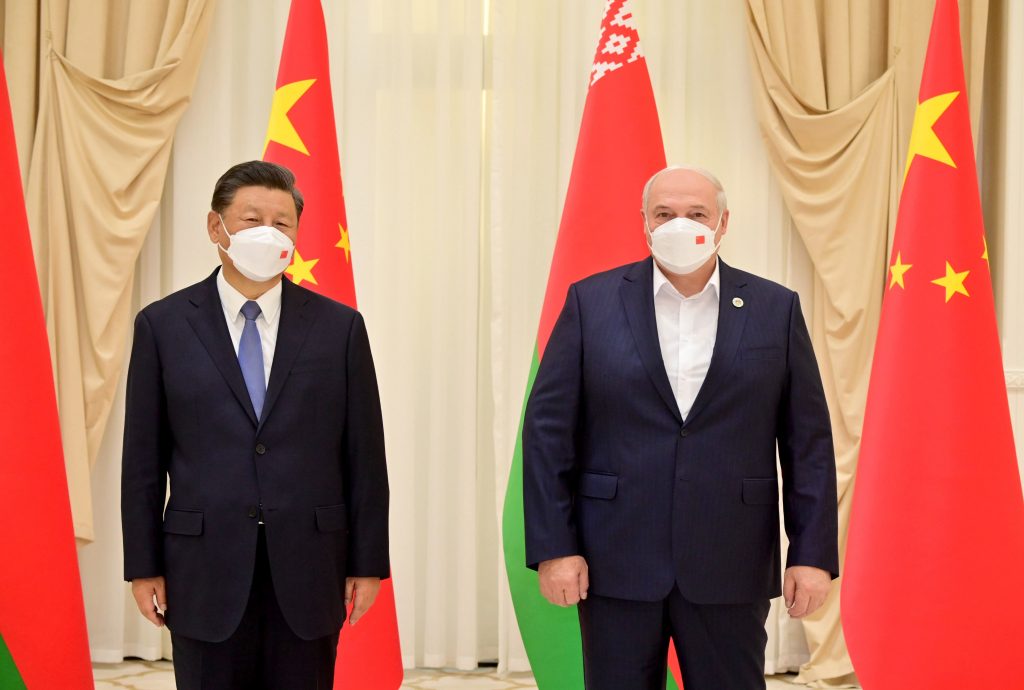
Attempting to analyse Lukashenka’s actions, one can be assumed: in a rather difficult situation, he is still trying to avoid participating in the war in Ukraine. He constantly arranges military exercises, accepts military equipment from Russia, threatens Poland and Lithuania with military rhetoric, and also tries to “flirt” with Russia – but so much so as not to speed up the integration processes.
Belarusian experts believe that Russia’s war in Ukraine put many processes related to Russia’s takeover of Belarus on hold, and Lukashenka took advantage of this. He again assembled a strong team, bringing many people closer who had been in disgrace for some time. So Viktor Sheiman (former head of affairs of the President of the Republic of Belarus) returned to Lukashenka’s team. The former Prime Minister Sergei Rumas received a signal of forgiveness.
In Belarus, there is now a concentration of people who fled Ukraine after the start of the war or were expelled. There was no place for them in Russia, for this reason, Lukashenko sheltered them all. Thus, people’s deputies Taras Kozak and Oleg Voloshin live in the Sokol district near Minsk, as well as, more recently, Viktor Medvedchuk and his wife. The wife of Oleg Voloshin, Nadezhda Sass, began to host a political program on the First Channel of Belarusian Television.

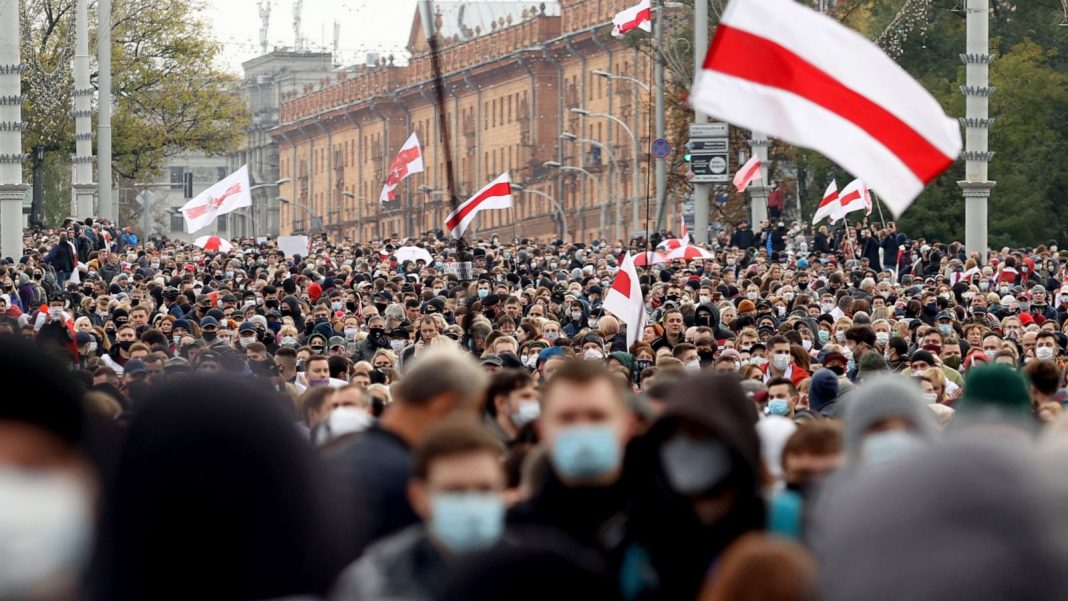

The second largest study included a cohort of 1181 BRCA1 and 412 BRCA2 mutation carriers 26 priligy 60 mg price